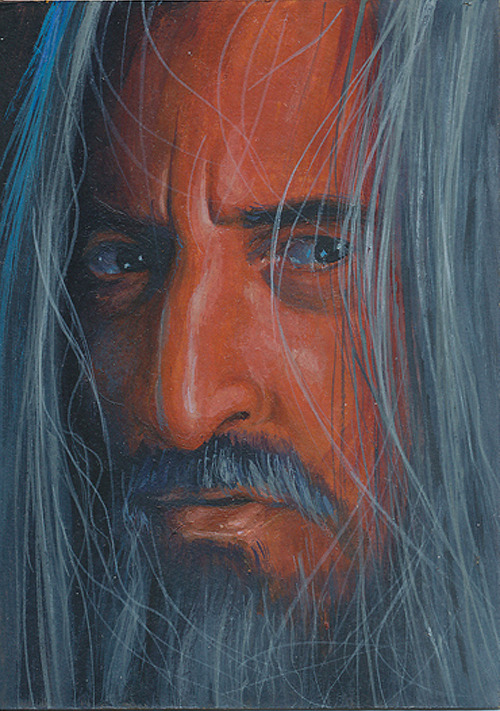#jrr tolkien
NEW! I finally hit 12 of these! gonna totally make a calendar! this and all the others are available at my Etsy!
Post link
Now and For Always (From Lord of the Rings the Musical) - James Loye & Peter Howe
Mais qui ne connaît par J.R.R. Tolkien ? Monument de la littérature fantasy, auteur de la Trilogie du…
Post link
In the days that followed his crowning the King sat on his throne in the Hall of the Kings and pronounced his judgements. And embassies came from many lands and peoples, from the East and the South, and from the borders of Mirkwood, and from Dunland in the west. And the King pardoned the Easterlings that had given themselves up, and sent them away free, and he made peace with the peoples of Harad; and the slaves of Mordor he released and gave to them all the lands about Lake Núrnen to be their own. And there were brought before him many to receive his praise and reward for their valour; and last the captain of the Guard brought to him Beregond to be judged.
And the King said to Beregond: ‘Beregond, by your sword blood was spilled in the Hallows, where that is forbidden. Also you left your post without leave of Lord or of Captain. For these things, of old, death was the penalty. Now therefore I must pronounce your doom.
'All penalty is remitted for your valour in battle, and still more because all that you did was for the love of the Lord Faramir. Nonetheless you must leave the Guard of the Citadel, and you must go forth from the City of Minas Tirith.’
Then the blood left Beregond’s face, and he was stricken to the heart and bowed his head. But the King said.:
'So it must be, for you are appointed to the White Company, the Guard of Faramir, Prince of Ithilien, and you shall be its captain and dwell in Emyn Arnen in honour and peace, and in the service of him for whom you risked all, to save him from death.’
And then Beregond, perceiving the mercy and justice of the King, was glad, and kneeling kissed his hand, and departed in joy and content. And Aragorn gave to Faramir Ithilien to be his princedom, and bade him dwell in the hills of Emyn Arnen within sight of the City.
–J.R.R. Tolkien, The Lord of the Rings: The Return of the King: “The Steward and the King”
I dislike the use of ‘political’ in such a context; it seems to me false. It seems clear to me that Frodo’s duty was 'humane’ not political. He naturally thought first of the Shire, since his roots were there, but the quest had as its object not the preserving of this or that polity, such as the half republic half aristocracy of the Shire, but the liberation from an evil tyranny of all the 'humane’*–including those, such as 'easterlings’ and Haradrim, that were still servants of the tyranny.
Denethorwas tainted with mere politics: hence his failure, and his mistrust of Faramir. It had become for him a prime motive to preserve the polity of Gondor, as it was, against another potentate, who had made himself stronger and was to be feared and opposed for that reason rather than because he was ruthless and wicked. Denethor despised lesser men, and one may be sure did not distinguish between orcs and the allies of Mordor. If he had survived as victor, even without use of the Ring, he would have taken a long stride towards becoming himself a tyrant, and the terms and treatment he accorded to the deluded peoples of east and south would have been cruel and vengeful. He had become a 'political’ leader: sc. Gondor against the rest.
But that was not the policy or duty set out by the Council of Elrond. Only after hearing the debate and realizing the nature of the quest did Frodo accept the burden of his mission. Indeed the Elves destroyed their own polity in pursuit of a 'humane’ duty. This did not happen merely as an unfortunate damage of War; it was known by them to be an inevitable result of victory, which could in no way be advantageous to Elves. Elrond cannot be said to have a political duty or purpose.
* humane: this (being in a fairy-story) includes of course Elves, and indeed all 'speaking creatures’.
–J.R.R Tolkien, The Letters of J.R.R. Tolkien, #183
Fingolfin challenges Morgoth by ~Peter Xavier Price
‘Now news came to Hithlum that Dorthonion was lost and the sons of Finarfin overthrown, and that the sons of Fëanor were driven from their lands. Then Fingolfin beheld (as it seemed to him) the utter ruin of the Noldor, and the defeat beyond redress of all their houses; and filled with wrath and despair he mounted upon Rochallor his great horse and rode forth alone, and none might restrain him. He passed over Dor-nu-Fauglith like a wind amid the dust, and all that beheld his onset fled in amaze, thinking that Oromë himself was come: for a great madness of rage was upon him, so that his eyes shone like the eyes of the Valar.
Thus he came alone to Angband’s gates, and he sounded his horn, and smote once more upon the brazen doors, and challenged Morgoth to come forth to single combat. And Morgoth came. That was the last time in those wars that he passed the doors of his stronghold, and it is said that he took not the challenge willingly; for though his might was greatest of all things in this world, alone of the Valar he knew fear. But he could not now deny the challenge before the face of his captains; for the rocks rang with the shrill music of Fingolfin’s horn, and his voice came keen and clear down into the depths of Angband; and Fingolfin named Morgoth craven, and lord of slaves.’
—J.R.R. Tolkien, The Silmarillion, “Of the Ruin of Beleriand and the Fall of Fingolfin”
Post link
The hobbits of the villages had seen Saruman come out of one of the huts, and at once they came crowding up to the door of Bag End. When they heard Frodo’s command, they murmured angrily:
‘Don’t let him go! Kill him! He’s a villain and a murderer. Kill him!’
Saruman looked round at their hostile faces and smiled. 'Kill him!’ he mocked. 'Kill him, if you think there are enough of you, my brave hobbits!’ He drew himself up and stared at them darkly with his black eyes. 'But do not think that when I lost all my goods I lost all my power! Whoever strikes me shall be accursed. And if my blood stains the Shire, it shall wither and never again be healed.’
The hobbits recoiled. But Frodo said: 'Do not believe him! He has lost all power, save his voice that can still daunt you and deceive you, if you let it. But I will not have him slain. It is useless to meet revenge with revenge: it will heal nothing. Go, Saruman, by the speediest way!’
'Worm! Worm!’ Saruman called; and out of a nearby hut came Wormtongue, crawling, almost like a dog. 'To the road again, Worm!’ said Saruman. 'These fine fellows and lordlings are turning us adrift again. Come along!’
Saruman turned to go, and Wormtongue shuffled after him. But even as Saruman passed close to Frodo a knife flashed in his hand, and he stabbed swiftly. The blade turned on the hidden mail-coat and snapped. A dozen hobbits, led by Sam, leaped forward with a cry and flung the villain to the ground. Sam drew his sword.
'No, Sam!’ said Frodo. 'Do not kill him even now. For he has not hurt me. And in any case I do not wish him to be slain in this evil mood. He was great once, of a noble kind that we should not dare to raise our hands against. He is fallen, and his cure is beyond us; but I would still spare him, in the hope that he may find it.’
Saruman rose to his feet, and stared at Frodo. There was a strange look in his eyes of mingled wonder and respect and hatred. 'You have grown, Halfling,’ he said. 'Yes, you have grown very much. You are wise, and cruel. You have robbed my revenge of sweetness, and now I must go hence in bitterness, in debt to your mercy. I hate it and you! Well, I go and I will trouble you no more. But do not expect me to wish you health and long life. You will have neither. But that is not my doing. I merely foretell.’
–J.R.R. Tolkien, The Lord of the Rings: The Return of the King, “The Scouring of the Shire”
Post link
‘Ah, wise lady!’ said Finrod. 'I am an Elda, and again I was thinking of my own people. But nay, of all the Children of Eru. I was thinking that by the Second Children we might have been delivered from death. For ever as we spoke of death being a division of the united, I thought in my heart of a death that is not so: but the ending together of both. For that is what lies before us, so far as our reason could see: the completion of Arda and its end, and therefore also of us children of Arda; the end when all the long lives of the Elves shall be wholly in the past.
'And then suddenly I beheld as a vision Arda Remade; and there the Eldar completed but not ended could abide in the present for ever, and there walk, maybe, with the Children of Men, their deliverers, and sing to them such songs as, even in the Bliss beyond bliss, should make the green valleys ring and the everlasting mountain-tops to throb like harps.’
Then Andreth looked under her brows at Finrod: 'And what, when ye were not singing, would ye say to us?’ she asked.
Finrod laughed. 'I can only guess,’ he said. 'Why, wise lady, I think that we should tell you tales of the Past and of Arda that was Before, of the perils and great deeds and the making of the Silmarils! We were the lordly ones then! But ye, ye would then be at home, looking at all things intently, as your own. Ye would be the lordly ones. “The eyes of Elves are always thinking of something else,” ye would say. But ye would know then of what we were reminded: of the days when we first met, and our hands touched in the dark. Beyond the End of the World we shall not change; for in memory is our great talent, as shall be seen ever more clearly as the ages of this Arda pass: a heavy burden to be, I fear; but in the Days of which we now speak a great wealth.’ And then he paused, for he saw that Andreth was weeping silently.
'Alas, lord!’ she said. 'What then is to be done now? For we speak as if these things are, or as if they will assuredly be. But Men have been diminished and their power is taken away. We look for no Arda Remade: darkness lies before us, into which we stare in vain. If by our aid your everlasting mansions were to be prepared, they will not be builded now.’
'Have ye then no hope?’ said Finrod.
'What is hope?’ she said. 'An expectation of good, which though uncertain has some foundation in what is known? Then we have none.’
'That is one thing that Men call “hope”,’ said Finrod. ’Amdir we call it, “looking up”. But there is another which is founded deeper. Estel we call it, that is “trust”. It is not defeated by the ways of the world, for it does not come from experience, but from our nature and first being. If we are indeed the Eruhin, the Children of the One, then He will not suffer Himself to be deprived of His own, not by any Enemy, not even by ourselves. This is the last foundation of Estel, which we keep even when we contemplate the End: of all His designs the issue must be for His Children’s joy. Amdir you have not, you say. Does no Estel at all abide?’
–J.R.R. Tolkien, The History of Middle-earth X: Morgoth’s Ring, “Athrabeth Finrod Ah Andreth”
And Tuor looked down from the lowest terrace and saw, leaning against its wall among the stones and the sea-wrack, an Elf, clad in a grey cloak sodden with the sea. Silent he sat, gazing beyond the ruin of the beaches out over the long ridges of the waves. All was still, and there was no sound save the roaring of the surf below.
As Tuor stood and looked at the silent grey figure he remembered the words of Ulmo, and a name untaught came to his lips, and he called aloud: ‘Welcome, Voronwë! I await you.’
Then the Elf turned and looked up, and Tuor met the piercing glance of his sea-grey eyes, and knew that he was of the high folk of the Noldor. But fear and wonder grew in his gaze as he saw Tuor standing high upon the wall above him, clad in his grey cloak like a shadow out of which elven-mail gleamed upon his breast.
A moment thus they stayed, each searching the face of the other, and then the Elf stood up and bowed low before Tuor’s feet. 'Who are you, lord?’ he said. 'Long have I laboured in the unrelenting sea. Tell me: have great tidings befallen since I walked the land? Is the Shadow overthrown? Have the Hidden People come forth?’
'Nay,’ Tuor answered. 'The Shadow lengthens, and the Hidden remain hid.’
–J.R.R. Tolkien, Unfinished Tales, “Of Tuor and His Coming to Gondolin”
Post link
The next day at the hour of sunset Aragorn walked alone in the woods, and his heart was high within him; and he sang, for he was full of hope and the world was fair. And suddenly even as he sang he saw a maiden walking on a greensward among the white stems of the birches; and he halted amazed, thinking that he had strayed into a dream, or else that he had received the gift of the Elf-minstrels, who can make the things of which they sing appear before the eyes of those that listen.
For Aragorn had been singing a part of the Lay of Lúthien which tells of the meeting of Lúthien and Beren in the forest of Neldoreth. And behold! there Lúthien walked before his eyes in Rivendell, clad in a mantle of silver and blue, fair as the twilight in Elven-home; her dark hair strayed in a sudden wind, and her brows were bound with gems like stars.
For a moment Aragorn gazed in silence, but fearing that she would pass away and never be seen again, he called to her crying, Tinúviel, Tinúviel! even as Beren had done in the Elder Days long ago.
Then the maiden turned to him and smiled, and she said: ‘Who are you? And why do you call me by that name?’
And he answered: 'Because I believed you to be indeed Lúthien Tinúviel, of whom I was singing. But if you are not she, then you walk in her likeness.’
'So many have said,’ she answered gravely. 'Yet her name is not mine. Though maybe my doom will be not unlike hers.’
–J.R.R. Tolkien, The Lord of the Rings: The Return of the King, Appendix A, “The Tale of Aragorn and Arwen”
Post link
And seated a little apart was a tall man with a fair and noble face, dark-haired and grey-eyed, proud and stern of glance.
He was cloaked and booted as if for a journey on horseback; and indeed though his garments were rich, and his cloak was lined with fur, they were stained with long travel. He had a collar of silver in which a single white stone was set; his locks were shorn about his shoulders. On a baldric he wore a great horn tipped with silver that now was laid upon his knees. He gazed at Frodo and Bilbo with sudden wonder.
`Here,’ said Elrond, turning to Gandalf, `is Boromir, a man from the South. He arrived in the grey morning, and seeks for counsel. I have bidden him to be present, for here his questions will be answered.’“The Council of Elrond”, Lord of the Rings, The Fellowship of the Ring,
J. R. R. Tolkien
Post link
‘The Valar!’ said Túrin. 'They have forsaken you, and they hold Men in scorn. What use to look westward across the endless Sea? There is but one Vala with whom we have to do, and that is Morgoth; and if in the end we cannot overcome him, at least we can hurt him and hinder him. For victory is victory, however small, nor is its worth only in what follows from it. But it is expedient also; for if you do nothing to halt him, all Beleriand will fall beneath his shadow before many years are passed, and then one by one he will smoke you out of your earths. And what then? A pitiable remnant will fly south and west, to cower on the shores of the Sea, caught between Morgoth and Ossë. Better then to win a time of glory, though it be shortlived; for the end will be no worse. You speak of secrecy, and say that therein lies the only hope; but could you ambush and waylay every scout and spy of Morgoth to the last and least, so that none ever came back with tidings to Angband, yet from that he would learn that you lived and guess where. And this also I say: though mortal Men have little life beside the span of the Elves, they would rather spend it in battle than fly or submit. The defiance of Húrin Thalion is a great deed; and though Morgoth slay the doer he cannot make the deed not to have been. Even the Lords of the West will honour it; and is it not written into the history of Arda, which neither Morgoth nor Manwë can unwrite?’
'You speak of high things,’ Gwindor answered, 'and plain it is that you have lived among the Eldar. But a darkness is on you if you set Morgoth and Manwë together, or speak of the Valar as the foes of Elves or Men; for the Valar scorn nothing, and least of all the Children of Ilúvatar. Nor do you know all the hopes of the Eldar. It is a prophecy among us that one day a messenger from Middle-earth will come through the shadows to Valinor, and Manwë will hear, and Mandos relent. For that time shall we not attempt to preserve the seed of the Noldor, and of the Edain also? And Círdan dwells now in the South, and there is building of ships; but what know you of ships, or of the Sea? You think of yourself and of your own glory, and bid us each to do likewise; but we must think of others besides ourselves, for not all can fight and fall, and those we must keep from war and ruin, while we can.’
–J.R.R. Tolkien, Unfinished Tales, “Narn I Hîn Húrin”, Appendix. See also
Melkor “incarnated himself” (as Morgoth) permanently. He did this so as to control the hroa, the “flesh” or physical matter, of Arda. He attempted to identify himself with it. A vaster, and more perilous, procedure, though of similar sort to the operation of Sauron with the Rings. Thus, outside the Blessed Realm, all “matter” was likely to have a “Melkor ingredient”, and those who had bodies, nourished by the hora of Arda, had as it were a tendency, small or great, towards Melkor: they were none of them wholly free of him in their incarnate form, and their bodies had an effect upon their spirits. But in this way Morgoth lost (or exchanged, or transmuted) the greater part of his original “angelic” powers, of mind and spirit, while gaining a terrible grip upon the physical world. For this reason he had to be fought, mainly by physical force, and enormous material ruin was a probable consequence of any direct combat with him, victorious or otherwise.
—-
This is the chief explanation of the constant reluctance of the Valar to come into open battle against Morgoth. Manwë’s task and problem was much more difficult than Gandalf’s. Sauron’s, relatively smaller, power was concentrated; Morgoth’s vast power was disseminated. The whole of “Middle-earth” was Morgoth’s Ring, though temporarily his attention was mainly upon the North-west. Unless swiftly successful, War against him might well end in reducing all Middle-earth to chaos, possibly even all Arda.
—-
It is easy to say: “It was the task and function of the Elder King to govern Arda and make it possible for the Children of Eru to live in it unmolested.” But the dilemma of the Valar was this: Arda could only be liberated by a physical battle; but a probable result of such a battle was the irretrievable ruin of Arda. Moreover, the final eradication of Sauron (as a power directing evil) was achievable by the destruction of the Ring. No such eradication of Morgoth was possible, since this required the complete disintegration of the “matter” of Arda.Morgoth’s Ring - The History of Middle-Earth - J.R.R. Tolkien
Post link
In a chair, at the far side of the room facing the outer door, sat a woman. Her long yellow hair rippled down her shoulders; her gown was green, green as young reeds, shot with silver like beads of dew; and her belt was of gold, shaped like a chain of flag-lilies set with the pale-blue eyes of forget-me-nots. About her feel in wide vessels of green and brown earthenware, white water-lilies were floating, so that she seemed to be enthroned in the midst of a pool.
‘Enter, good guests!’ she said, and as she spoke they knew that it was her clear voice they had heard singing. They came a few timid steps further into the room, and began to bow low, feeling strangely surprised and awkward, like folk that, knocking at a cottage door to beg for a drink of water, have been answered by a fair young elf-queen clad in living flowers. But before they could say anything, she sprang lightly up and over the lily-bowls, and ran laughing towards them; and as she ran her gown rustled softly like the wind in the flowering borders of a river.
'Come dear folk!’ she said, taking Frodo by the hand. 'Laugh and be merry! I am Goldberry, daughter of the River.’ Then lightly she passed them and closing the door she turned her back to it, with her white arms spread out across it. 'Let us shut out the night!’ she said. 'For you are still afraid, perhaps, of mist and tree-shadows and deep water, and untame things. Fear nothing! For tonight you are under the roof of Tom Bombadil.’
The hobbits looked at her in wonder; and she looked at each of them and smiled. 'Fair lady Goldberry!’ said Frodo at last, feeling his heart moved with a joy that he did not understand. He stood as he had at times stood enchanted by fair elven-voices; but the spell that was now laid upon him was different: less keen and lofty was the delight, but deeper and nearer to mortal heart; marvellous and yet not strange. 'Fair lady Goldberry!’ he said again. 'Now the joy that was hidden in the songs we heard is made plain to me.
O slender as a willow-wand! O clearer than clear water!
O reed by the living pool! Fair River-daughter!
O spring-time and summer-time, and spring again after!
O wind on the waterfall, and the leaves’ laughter!’
–J.R.R. Tolkien, The Lord of the Rings: The Fellowship of the Ring, “In the House of Tom Bombadil”
Post link
“Yet in truth, Saruman’s spying and great secrecy had not in the beginning any evil purpose, but was no more than a folly born of pride. Small matters, unworthy it would seem to be reported, may yet prove of great moment ere the end. Now truth to tell, observing Gandalf’s love of the herb that he called ‘pipe-weed’ (for which, he said, if for nothing else, the Little People should be honoured), Saruman had affected to scoff at it, but in private he made trial of it, and soon began to use it; and for this reason the Shire remained important to him. Yet he dreaded lest this should be discovered, and his own mockery turned against him, so that he would be laughed at for imitating Gandalf, and scorned for doing so by stealth. This then was the reason for his great secrecy in all his dealings with the Shire….
But Gandalf knew of these visits, and guessed their object, and he laughed, thinking this the most harmless of Saruman’s secrets; but he said nothing to others, for it was never his wish that any one should be put to shame.”
— J.R.R. Tolkien, Unfinished Tales, “The Hunt for the Ring”
Smith and the Queen of Faery; art by Ted Nasmith
Then he knelt, and she stooped and laid her hand on his head, and a great stillness came upon him; and he seemed to be both in the World and in Faery, and also outside them and surveying them, so that he was at once in bereavement, and in ownership, and in peace.
J.R.R. Tolkien, Smith of Wootton Major
Post link
In the first [account of the Second Age (The Rings of Power)] we see a sort of second fall or at least ‘error’ of the Elves. There was nothing wrong essentially in their lingering against counsel, still sadly with the mortal lands of their old heroic deeds. But they wanted to have their cake without eating it. They wanted peace and bliss and perfect memory of 'The West’, and yet remain on the ordinary earth where their prestige as the highest people, above wild Elves, dwarves, and Men, was greater than at the bottom of the hierarchy of Valinor. They thus became obsessed with 'fading’, the mode in which the changes of time (the law of the world under the sun) was perceived by them. They became sad, and their art (shall we say) antiquarian, and their efforts all really a kind of embalming–even though they also retained the old motive of their kind, the adornment of earth, and the healing of its hurts. … There arose a friendship between the usually hostile folk (of Elves and Dwarves) for the first and only time, and smithcraft reached its highest development. But many of the Elves listened to Sauron. He was still fair in that early time, and his motives and those of the Elves seemed to go partly together: the healing of the desolate lands. Sauron found their weak point in suggesting that, helping one another, they could make Western Middle-earth as beautiful as Valinor. It was really a veiled attack on the gods, an incitement to try and make a separate independent paradise. Gilgalad repulsed all such overtures, as also did Elrond. But at Eregion great work began–and the Elves came their nearest to falling to ’magic’ and machinery. With the aid of Sauron’s lore they made the Rings of Power….
–J.R.R. Tolkien, The Letters of J.R.R. Tolkien, 131 (Art by Angus McBride)
Post link
‘Who is Saruman?’ asked Pippin. 'Do you know anything about his history?'
'Saruman is a Wizard,’ answered Treebeard. 'More than that I cannot say. I do not know the history of Wizards. They appeared first after the Great Ships came over the Sea; but if they came with the Ships I never can tell. Saruman was reckoned great among them, I believe. He gave up wandering about and minding the affairs of Men and Elves, some time ago–you would call it a very long time ago: and he settled down at Angrenost, or Isengard as the Men of Rohan call it. He was very quiet to begin with, but his fame began to grow. He was chosen to be head of the White Council, they say; but that did not turn out too well. I wonder now if even then Saruman was not turning to evil ways. But at any rate he used to give no trouble to his neighbours. I used to talk to him. There was a time when he was always walking about my woods. He was polite in those days, always asking my leave (at least when he met me); and always eager to listen. I told him many things that he would never have found out by himself; but he never repaid me in like kind. I cannot remember that he ever told me anything. And he got more and more like that; his face, as I remember it–I have not seen it for many a day–became like windows in a stone wall: windows with shutters inside.’
–J.R.R. Tolkien, The Lord of the Rings: The Two Towers, “Treebeard”
Post link







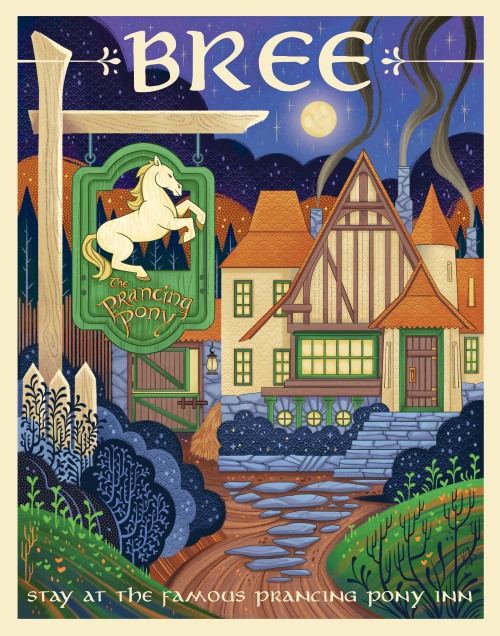

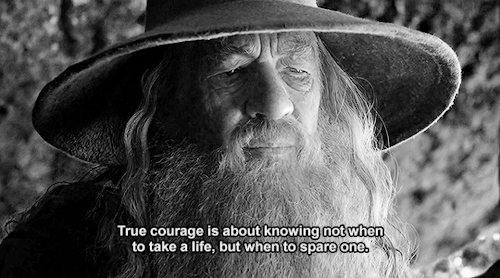
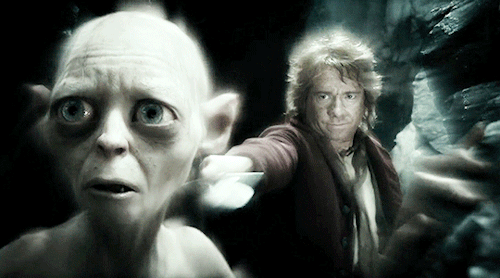

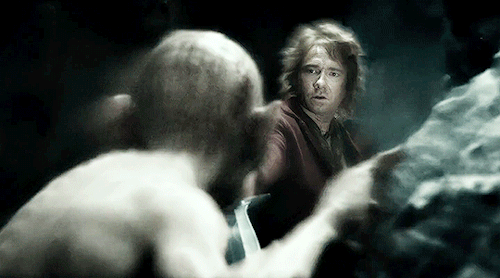
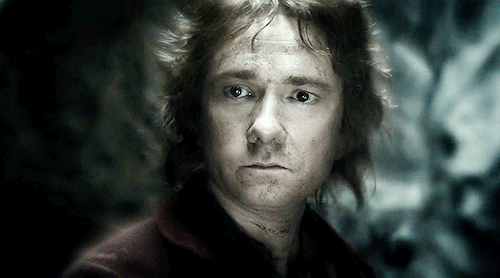
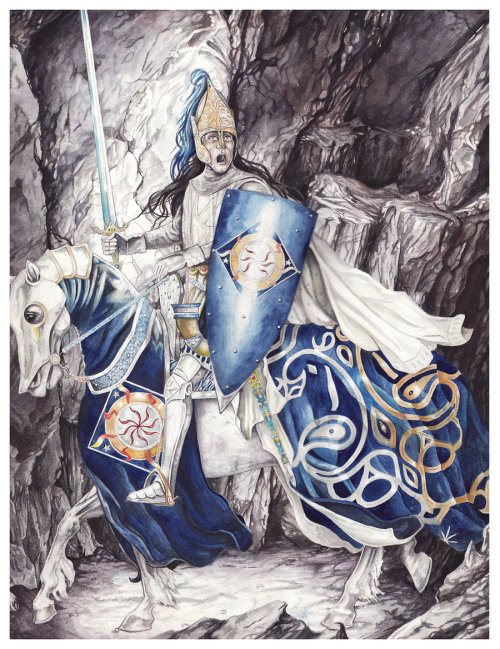
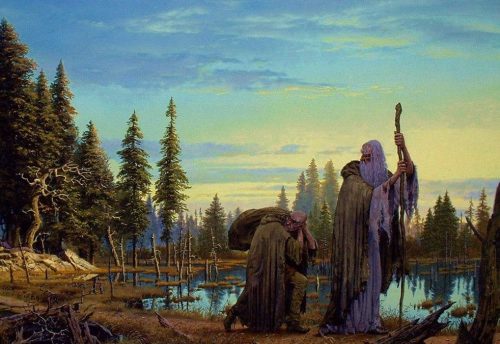
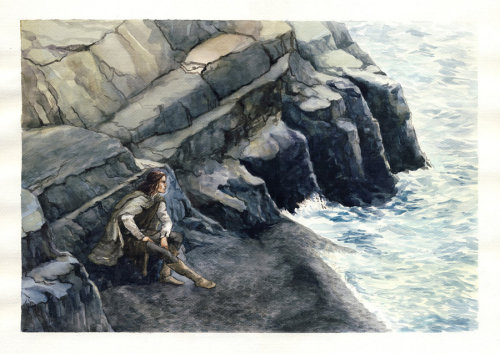

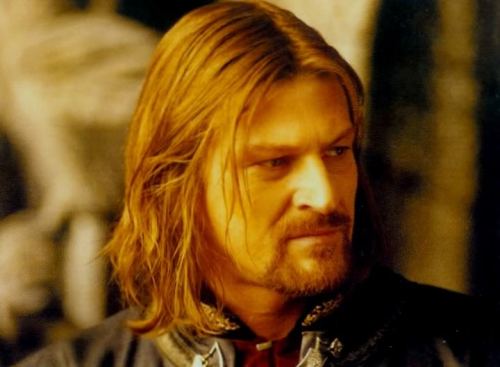

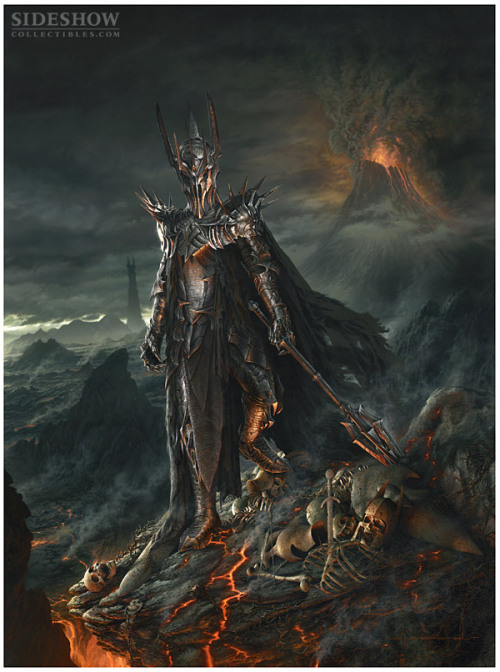
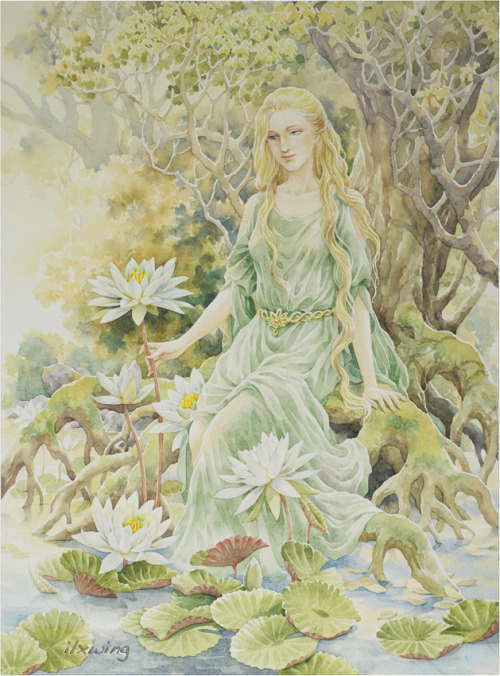
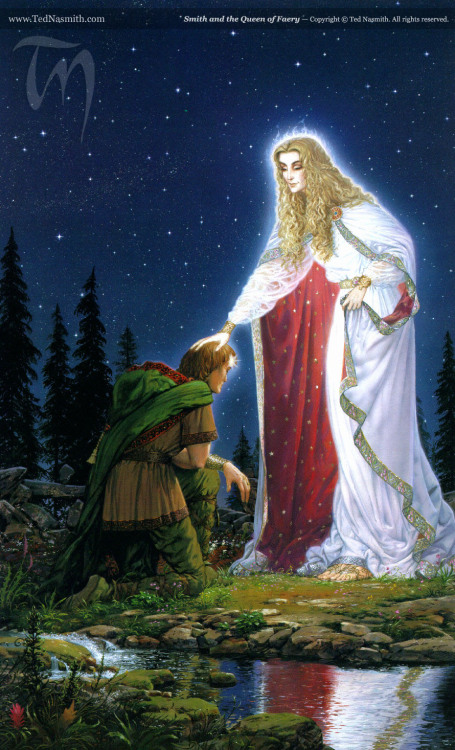
![In the first [account of the Second Age (The Rings of Power)] we see a sort of second fall or at lea In the first [account of the Second Age (The Rings of Power)] we see a sort of second fall or at lea](https://64.media.tumblr.com/827a36b632dd758ee16e61f411595090/tumblr_miqd0svPQd1rtwlb5o1_500.jpg)
